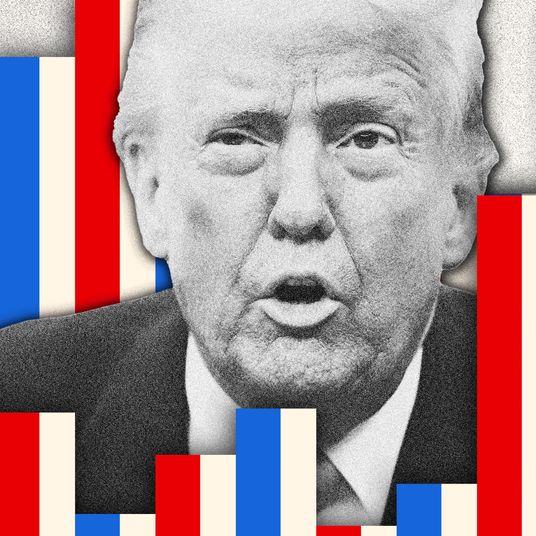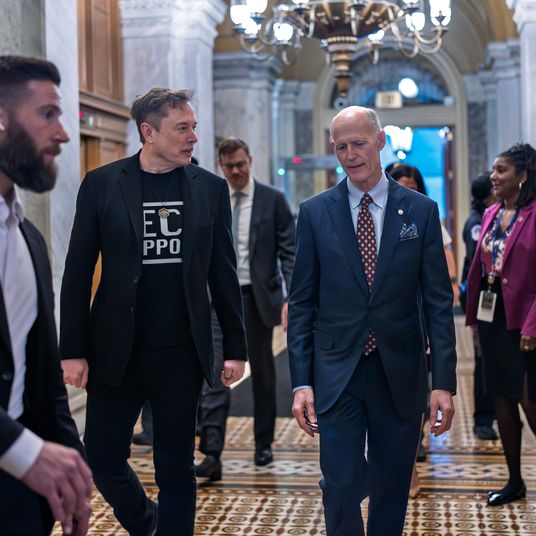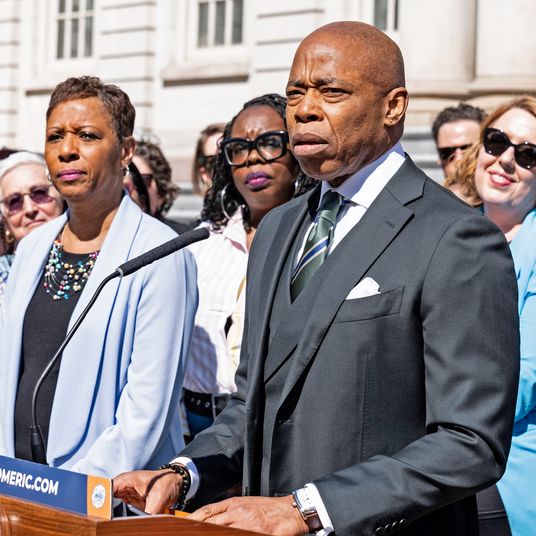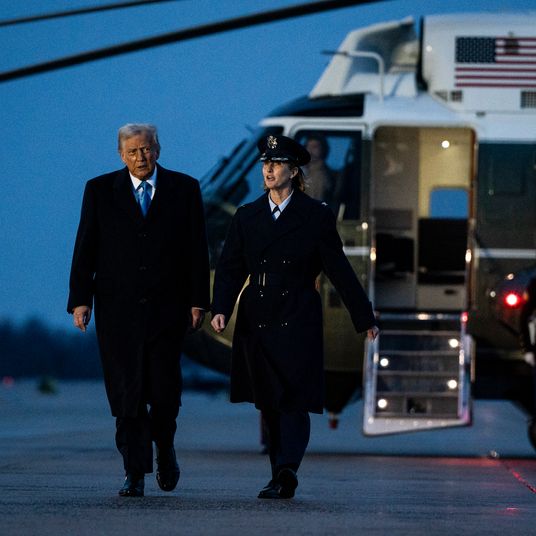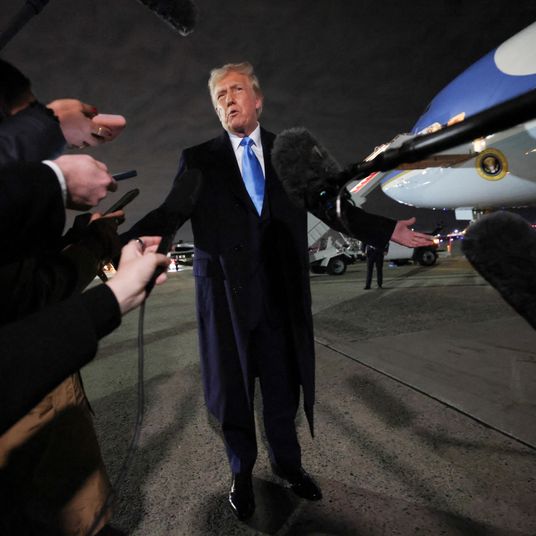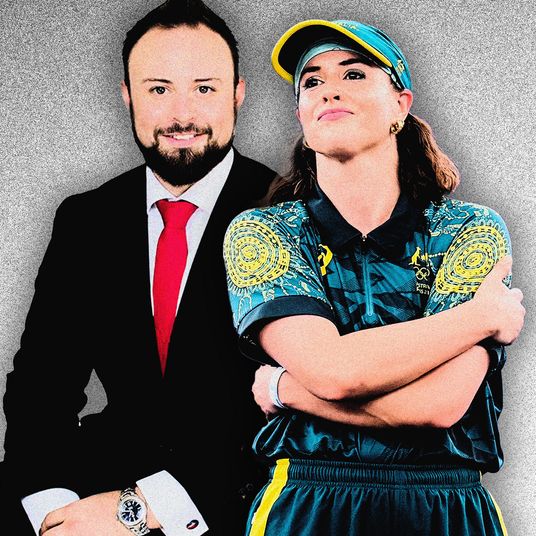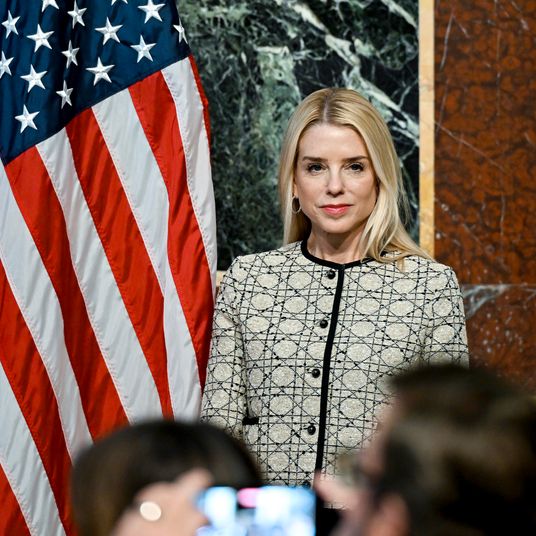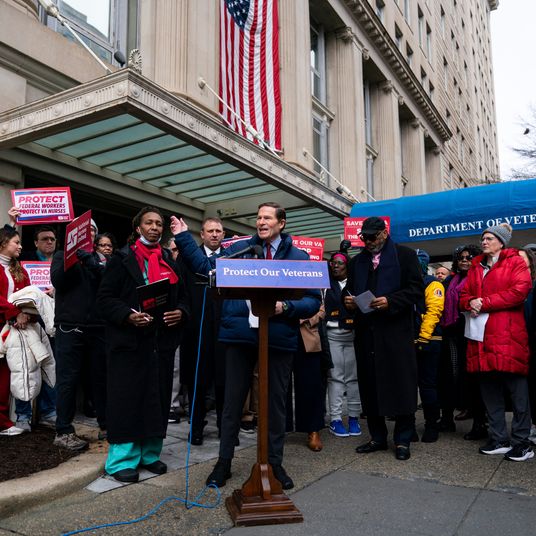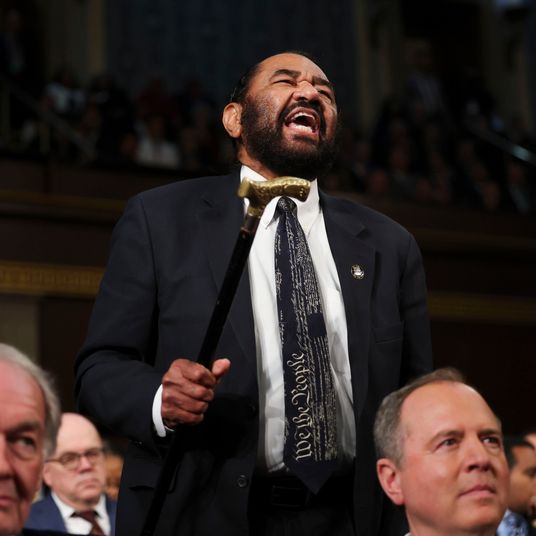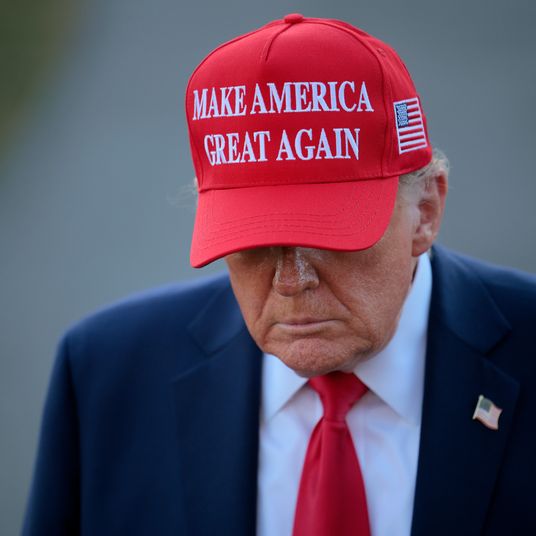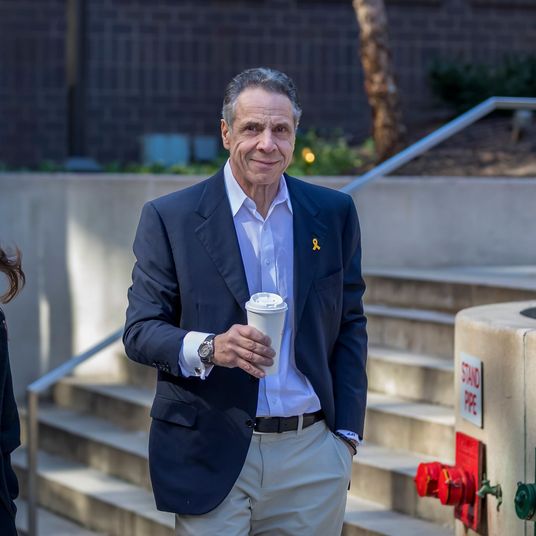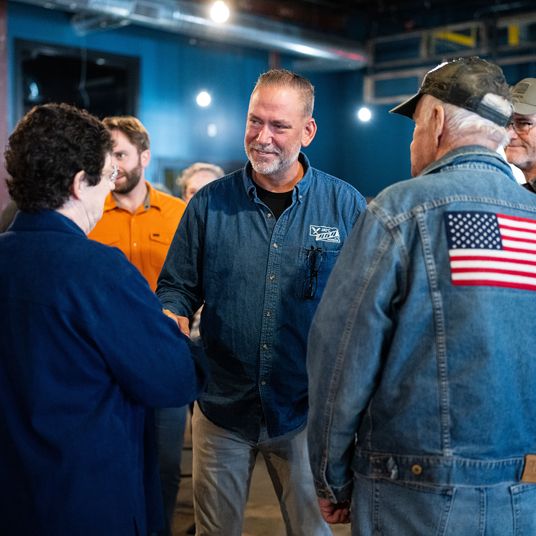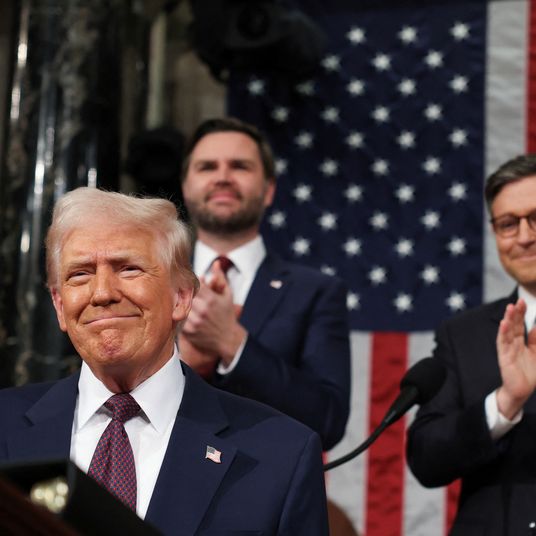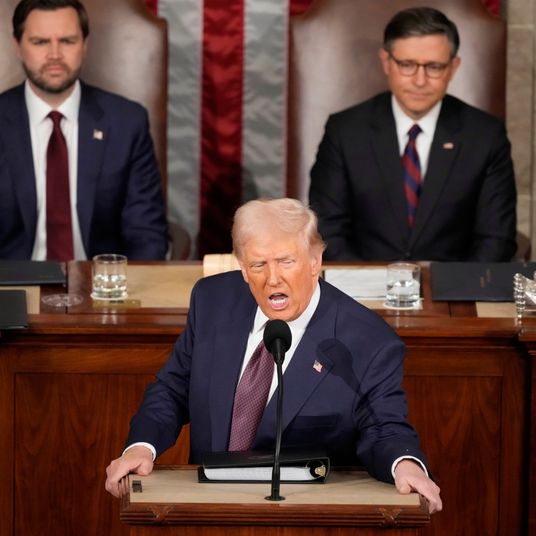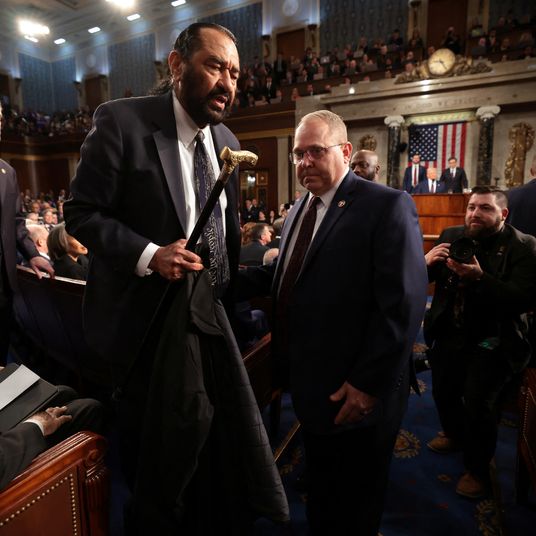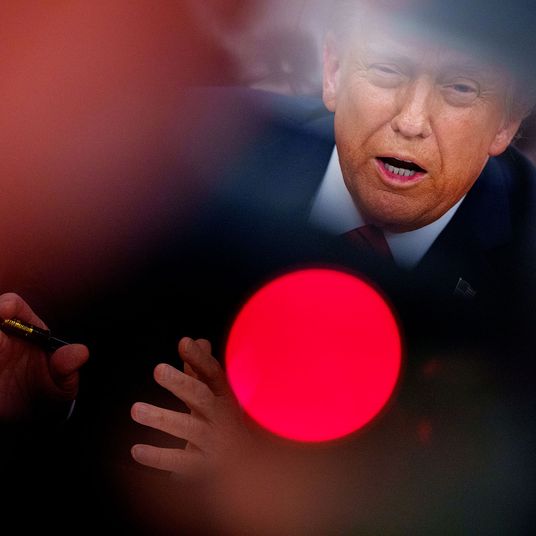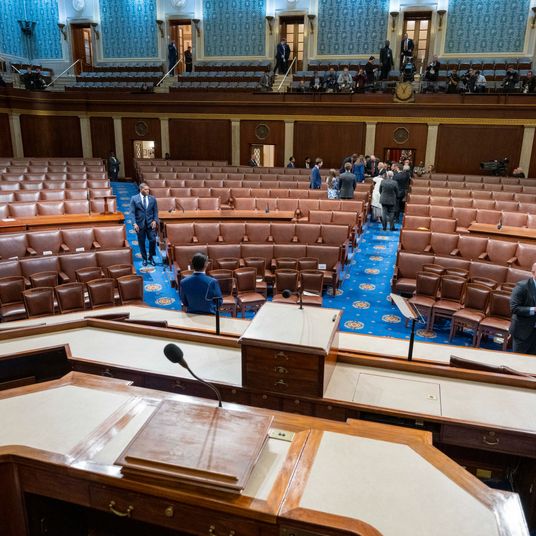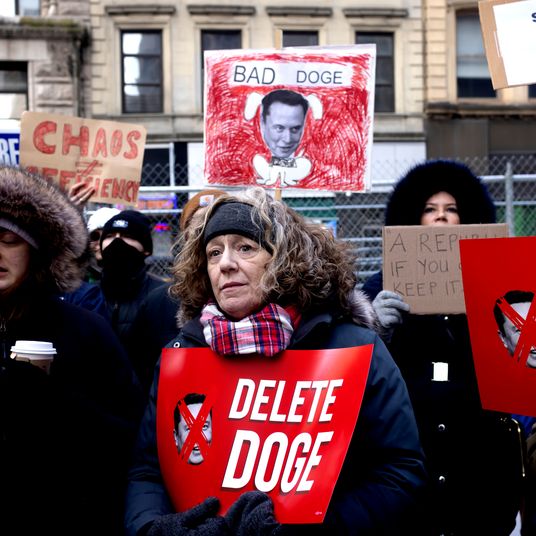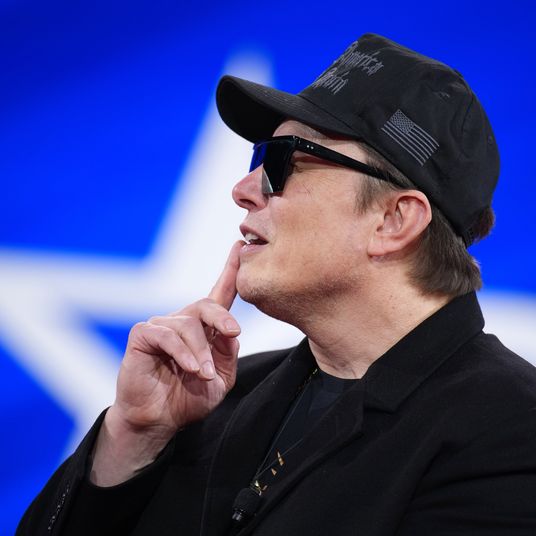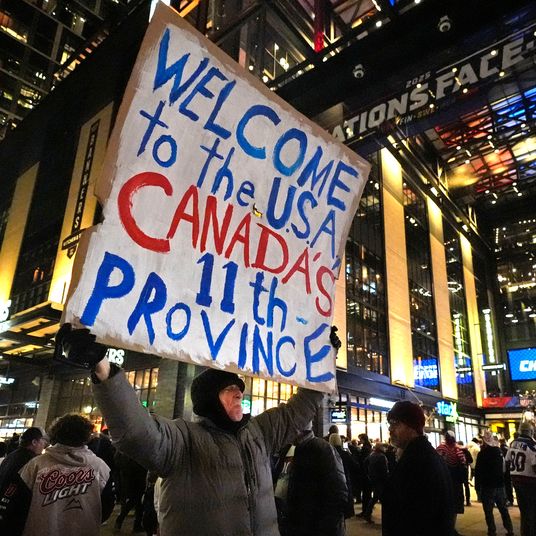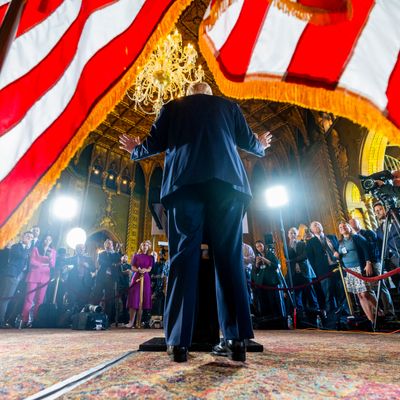
No one expected Donald Trump to kick off his second term by trying to Make Imperialism Great Again, but here we are. In the past few weeks, the president has revived his effort to buy Greenland, threatened to retake the Panama Canal, suggested that Canada become the 51st state, and (sort of) renamed the Gulf of Mexico the “Gulf of America.” (He also plans to “take over the Gaza Strip,” expel 2 million Palestinians, and “develop it” into a hedonistic billionaires’ playground, an idea so appalling it’s in a category all its own.)
To be sure, the way that Trump is presenting all of these ideas is very stupid. But some of these outlandish threats reflect reasonable U.S. strategic goals. Others are just geopolitical bullying run amok or perhaps an attempt to bring back Nixon’s “madman theory.” Here’s a guide to Trump’s expansionist agenda and whether any of it is actually feasible.
What did Trump say about Greenland?
We learned that taking “ownership and control” of Greenland, the world’s largest island, would be a top priority in Trump’s second term from a December 22 Truth Social post that was ostensibly about announcing Ken Howery as his pick for ambassador to Denmark. His message concluded:
For purposes of National Security and Freedom throughout the World, the United States of America feels that the ownership and control of Greenland is an absolute necessity. Ken will do a wonderful job in representing the interests of the United States. Thank you Ken, and congratulations!
Five days before his inauguration, Trump reportedly had an “aggressive” 45-minute phone call with Mette Frederiksen in which he informed the Danish prime minister that he wants the U.S. to take over Greenland. According to the New York Times, Frederiksen said he’s open to more cooperation with the U.S., but Greenland is not for sale.
Less than a week after his inauguration, President Trump said of Greenland, “I think we’re going to have it.” He also admitted that he hasn’t studied up on the issue, saying, “I don’t know really what claim Denmark has to it. But it would be a very unfriendly act if they didn’t allow that to happen because it’s for protection of the free world. It’s not for us, it’s for the free world.”
What did Marco Rubio say about buying Greenland?
“This is not a joke” — which is probably something no secretary of State wants to say when discussing the administration’s policy proposals. In a January 30 interview with The Megyn Kelly Show on SiriusXM, Rubio said of Trump’s proposal, “This is not about acquiring land for the purpose of acquiring land. This is in our national interest and it needs to be solved.”
Why does Trump want Greenland?
At a January 7 press conference, Trump offered this confusing explanation, which has “I can see Russia from my house” vibes:
Well, we need Greenland for national security purposes. I’ve been told that for a long time, long before I even ran. I mean, people have been talking about it for a long time. You have approximately 45,000 people there. People really don’t even know if Denmark has any legal right to it, but if they do, they should give it up because we need it for national security.
That’s for the free world. I’m talking about protecting the free world. You look at — you don’t even need binoculars, you look outside, you have China ships all over the place. You have Russian ships all over the place. We’re not letting that happen. We’re not letting it happen. And if Denmark wants to get to a conclusion — but nobody knows if they even have any right title or interest.
“China ships”? What is Trump talking about?
Greenland is important for economic and defense reasons, as it is located between the U.S., Russia, and Europe. It also has important natural resources, like oil, natural gas, and rare earth minerals. Trump is right about how “people have been talking about it for a long time”: American leaders have been looking for ways to exert greater control over the island for more than a century.
Greenland is now even more strategically valuable, since melting sea ice has opened up new Arctic shipping routes. Alexander B. Gray explained the situation in a November Wall Street Journal opinion piece:
Russia and China are threatening the status quo in the Arctic. Moscow has claimed significant chunks of the Arctic Sea, including inside Greenland’s Exclusive Economic Zone. Russian survey ships have encroached on Greenland’s waters, and Russia is expanding its Arctic bases and formidable icebreaker fleet. China has declared itself a “near-Arctic state,” established a shipping network called the “Polar Silk Road” to bind Arctic communities closer to Beijing’s economic and political agenda, and built its own fleet of icebreakers.
What did Trump say about Greenland in his address to Congress?
In his March 4 speech, Trump said of Greenland, “We need it really for international, for world security.” He added, ominously, “I think we’re going to get it. One way or the other, we’re going to get it.”
Can Trump actually buy Greenland?
Theoretically, yes. But after Trump’s January 7 press conference Danish prime minister Mette Frederiksen said that Greenland’s prime minister, Múte Egede, “has been very, very clear — that there is a lot of support among the people of Greenland that Greenland is not for sale and will not be in the future either.”
Greenland is a semi-autonomous territory of the Kingdom of Denmark with its own elected government. But Greenland is moving toward independence; in February Greenland’s ruling Siumut party said it plans to hold a vote on independence sometime after a general election on March 11.
Does Greenland want to be part of the U.S.?
Not really. “We don’t want to be Danish, we don’t want to be American, we want to be Greenlandic,” the island’s prime minister, Múte Egede, said on January 10.
But they may be open to some kind of geopolitical situationship that strengthens their ties to the U.S. “The reality is we are going to work with the U.S. — yesterday, today and tomorrow,” Egede said on January 13.
Greenland is the least densely populated region in the world with a population of around 60,000. While a majority of Greenlanders want independence, they are economically dependent on Denmark and would have trouble handling their own security.
One solution that’s been floated is Greenland forming a “free association” pact with the United states, Alexander B. Gray made the case for this setup in his WSJ piece:
The U.S. can offer an option that preserves Greenland’s sovereignty while protecting it from malign actors. The U.S. has used Compacts of Free Association for decades with three small island states in the Pacific. These COFAs allow Micronesia, Palau and the Marshall Islands full independence and the power to conduct their own foreign relations while also giving the U.S. military access and requiring Washington to provide for their defense. The U.S. also gives economic support.
Didn’t Trump already try to buy Greenland?
Yes. He had White House aides look into purchasing the island in 2019.
How did that end?
Everyone laughed at Trump when the story got out. Then he got angry and abruptly canceled a state visit with the Danes because they wouldn’t consider his ridiculous offer.
What did Trump say about the Panama Canal?
In a pair of Truth Social posts on December 21, Trump claimed that Panama is charging the U.S. “exorbitant” and “ridiculous” fees to use the canal. He criticized the 1977 treaty that gave Panama control of the U.S-built canal, which was signed by Jimmy Carter. He claimed Panama is violating that treaty by letting China run the canal (which isn’t happening) and said that if things don’t change, he’ll demand the canal’s return to the U.S. (which isn’t possible):
Our Navy and Commerce have been treated in a very unfair and injudicious way. The fees being charged by Panama are ridiculous, especially knowing the extraordinary generosity that has been bestowed to Panama by the U.S. This complete “rip-off” of our Country will immediately stop …
… The United States has a vested interest in the secure, efficient, and reliable operation of the Panama Canal, and that was always understood. We would and will NEVER let it fall into the wrong hands! It was not given for the benefit of others, but merely as a token of cooperation with us and Panama. If the principles, both moral and legal, of this magnanimous gesture of giving are not followed, then we will demand that the Panama Canal be returned to us, in full, and without question. To the Officials of Panama, please be guided accordingly!
He repeated his threat a few days later at the Turning Point USA America Fest:
And now we’re “taking back” the Panama Canal?
Apparently! During his second inauguration address, Trump declared, “China is operating the Panama Canal. We didn’t give it to China, we gave it to Panama. And we’re taking it back.”
During his March 4 address to Congress, Trump claimed victory after the Hong Kong-based company said it would sell its stake in two ports on the Panama Canal to a U.S.-led consortium.
“My administration will be reclaiming the Panama Canal, and we’ve already started doing it,” he said. “Just today, a large American company announced they are buying both ports around the Panama Canal.”
Who controls the Panama Canal?
Trump repeatedly claimed that China runs the canal. On Christmas Day, he said Chinese soldiers are “illegally operating the Panama Canal.” Then at his January 7 press conference, he said, “China’s basically taken it over. China’s at both ends of the Panama Canal. China’s running the Panama Canal.”
This is not true. Since Panama fully took control of the canal in 1999, it has been run by the Panama Canal Authority; its board is selected by the Panamanian government. The two ports at the canal’s entrances are managed by a Chinese company, CK Hutchison Holdings. That has raised legitimate intelligence concerns, as Chinese firms operating overseas “must gather and report intelligence on foreign entities to the Chinese government,” per Foreign Policy.
But Trump is exaggerating the Chinese government’s involvement in the canal. “There are no Chinese soldiers in the canal, for the love of God,” President José Raúl Mulino of Panama said in December. “The world is free to visit the canal.”
Nevertheless, in early March CK Hutchinson announced that it has agreed in principle to sell its controlling stake in the ports to a consortium led by U.S. asset manager BlackRock.
Is Panama really charging the U.S. higher rates?
No. Trump said Panama is charging “ridiculous” fees to use the canal, and the U.S. in particular is being “treated in a very unfair and injudicious way.” But Mulino insisted the rates are “not on a whim,” and all countries are subject to the same fees, which are set by the Panama Canal Authority.
Rates have gone up recently, and that disproportionally affected the U.S. — but that’s not because Panama is targeting the U.S. Per the New York Times:
Rates have gone up recently … That’s because starting in 2023, Panama experienced severe drought, driven by a combination of El Niño and climate change, which Mr. Trump has called a hoax. With water levels at Gatun Lake, the principal hydrological reserve for the canal, at historically low levels, authorities reduced shipping through the canal to conserve the lake’s fresh water.
A Trump spokeswoman said that because the United States is the biggest user of the canal, the increase in fees hits its ships the most.
Can the U.S. just take back the Panama Canal?
Not unless he wants to start a military conflict — which Trump suggested is on the table! There is no return policy in the Panama Canal Treaty. But when asked at his January 7 press conference if he’d rule out using military force to seize the canal (and Greenland), Trump replied, “I’m not going to commit to that.”
So is Trump going to invade Panama?
Probably not? Trump’s reasons for threatening Panama are murkier than his motives with Greenland. Most experts think he’s just trying to get a discount for U.S. ships or more assistance from Mulino on curbing illegal immigration to the U.S. (though Mulino has already been quite willing to help the U.S. on that issue).
But sure, Panama has no military, so the U.S. is physically capable of seizing control of the canal if Trump orders an invasion. That just wouldn’t go over well with the international community.
“If the U.S. wanted to flout international law and act like Vladimir Putin, the U.S. could invade Panama and recover the canal,” Benjamin Gedan, director of the Wilson Center’s Latin America Program, told the Times. “No one would see it as a legitimate act, and it would bring not only grievous damage to their image, but instability to the canal.”
What is Marco Rubio’s role in this?
The new secretary of State made Panama his first overseas stop since taking office. During his February 2. According to the State Department’s summary of the trip, “Rubio made clear that this status quo is unacceptable and that absent immediate changes, it would require the United States to take measures necessary to protect its rights under the treaty.”
Mulino offered concessions, saying Panama won’t renew a 2017 infrastructure funding agreement with China, and offering “technical-level” talks to address Trump’s concerns about Chinse control of the canal. But the president said simply giving it back is “impossible, I can’t negotiate,” per the Wall Street Journal. He added: “That is done. The canal belongs to Panama.”
Is Trump going to annex Canada?
No. The idea of the U.S. invading Canada is so ludicrous that even Trump ruled that out at his January 7 press conference. Instead, he suggested the U.S. will acquire our neighbor via “economic force,” once Canadians realize we’d be better together.
But Canadians don’t actually want that. After the presser, outgoing Canadian prime minister Justin Trudeau said, “There isn’t a snowball’s chance in hell that Canada would become part of the United States.”
And Trump doesn’t really want that either. With its population of more than 40 million, Canada would become the most populous state in the U.S. And it would “be a blue-state behemoth,” as Rich Lowrey pointed out in the New York Post:
There are red areas of Canada, which have the same urban versus rural divide as the US, yet the Great White North is overall less conservative.
Polling in Canada prior to the US presidential election showed Kamala Harris with a 3-to-1 lead over Trump and an advantage even in more natural Trump territory in the prairies.
So why does Trump keep talking about making Canada the 51st state?
He’s just trolling. The whole “51st state” thing started when Trudeau dined at Mar-a-Lago in November. The Canadian prime minister warned Trump that his threat to impose a 25 percent tariff on all goods from Canada would have dire economic consequences. Trump reportedly shot back that if Canada can’t survive without major assistance from its neighbor, maybe it should just become a new U.S. state.
This was a pretty good quip; Trump reportedly made Trudeau and others at the table “laugh nervously.” But over the past few weeks, he’s taken the supposed joke way too far. Trump repeatedly taunted “Governor Trudeau” — who announced last week that he is stepping down soon — on social media and posted maps showing Canada as part of the U.S., raising questions about whether he understands how dumb this is.
Why did Trump rename the Gulf of Mexico?
It’s unclear. Amid rambling complaints about America’s neighbors during his January 7 press conference, Trump announced, “We’re going to be changing the name of the Gulf of Mexico to the Gulf of America.”
He said the new name “has a beautiful ring” and “it’s appropriate” because “we do most of the work there and it’s ours.” But no one knows what that means.
Then during his second inaugural address, Trump declared, “A short time from now, we are going to be changing the name of the Gulf of Mexico to the Gulf of America.”
How did that go over in the room?
Trump got a standing ovation from the assembled Republicans, and Hillary Clinton seemed to enjoy it, too.
How did that go over among the public?
The American people are considerably less enthusiastic.
Did Trump really change the name to “Gulf of America”?
Sort of. On his first day in office Trump signed an executive order that called for renaming the Gulf of Mexico as the Gulf of America (and changing the name of Denali back to Mount McKinley).
A few days later, the Interior Department issued a statement announcing that the renaming of the Gulf was underway: “The U.S. Board on Geographic Names, under the purview of the Department of the Interior, is working expeditiously to update the official federal nomenclature in the Geographic Names Information System to reflect these changes, effective immediately for federal use.”
Governor Ron DeSantis has already started using the name the Gulf of America, but Trump only has the power to dictated the name used by the federal government — state governments, companies, and other nations don’t have to go along with it. But some opted to anyway: Google said it will change the name of the Gulf of Mexico to “Gulf of America,” and Chevron made the switch too.
How did Mexico respond to Trump’s idea?
Unsurprisingly, Mexico isn’t into it. At a press conference prior to Trump’s inauguration, Mexico’s president, Claudia Sheinbaum, showed a 1607 map that used the name Gulf of Mexico and labeled much of the current-day U.S. as “Mexican America.”
She sarcastically suggested changing the name of the United States, saying, “Why don’t we call it Mexican America? It sounds nice, no?”
So what happens now?
Trump declares war on Cuba? He tries to give New England back to King Charles? Who knows! But it’s a safe bet that things will get even stupider.
This piece has been updated.
More Tremendous Content
- Melania Trump’s Mysterious Amazon Documentary: What We Know
- White House Says Trump Hand Bruise Is Proof of His Virility
- Trump to Personally Investigate ‘Stolen’ Fort Knox Gold Theory







